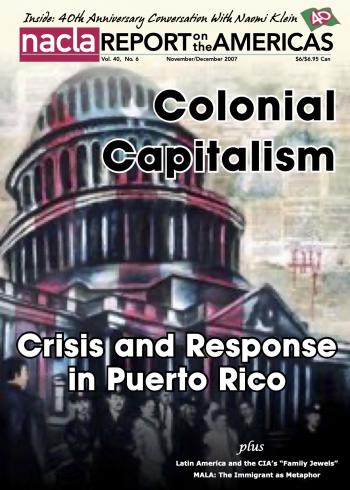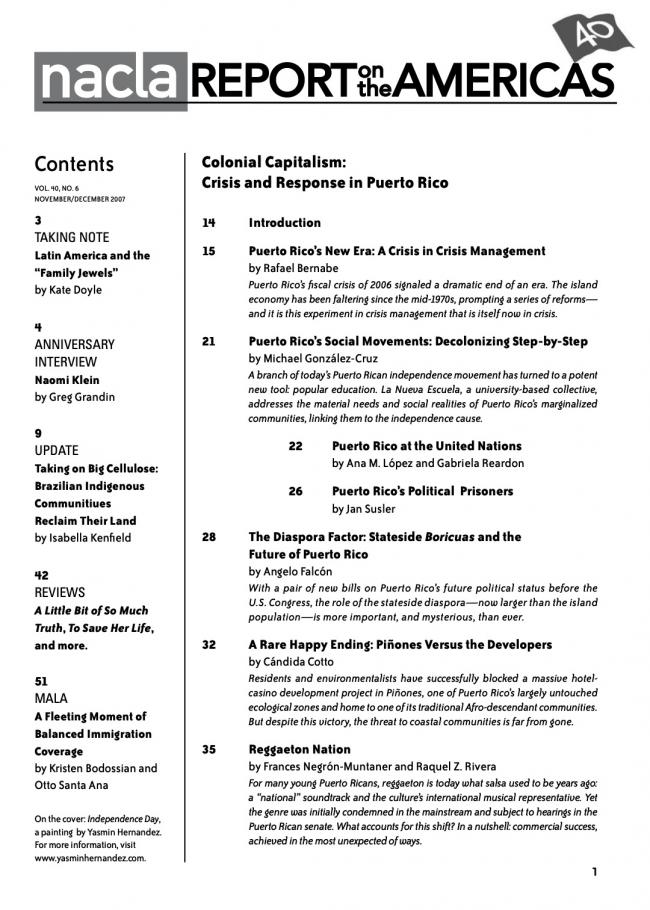Report
As tourism continues to grow into one of the most profitable sectors of Puerto Rico’s economy, many small communities have found themselves threatened by development companies. The small coastal village of Piñones, just outside the town of Loíza, has managed to defend itself from the designs of PFZ Properties, which belongs to a Puerto Rican developer named Joel Katz, an entrepreneur known to be close to the inner circles of the Partido Popular Democrático.
Today, two of the original 15 pro-independence militants arrested in the early 1980s remain in prison: Carlos Alberto Torres and Oscar López Rivera, who have now served 27 and 26 years of their 70-year sentences.
Ana M. López and Gabriela Reardon
The United Nations General Assembly may review the question of Puerto Rico’s colonial status next year, thanks to a resolution passed in June by the Special Committee on Decolonization.
A branch of today’s Puerto Rican independence movement has turned to a potent new tool: popular education. La Nueva Escuela, a university-based collective, addresses the material needs and social realities of Puerto Rico’s marginalized communities, linking them to the independence cause.
Puerto Rico’s fiscal crisis of 2006 signaled a dramatic end of an era. The island economy has been faltering since the mid-1970s, prompting a series of reforms—and it is this experiment in crisis management that is itself now in crisis.
Frances Negrón-Muntaner and Raquel Z. Rivera
For many young Puerto Ricans, reggaeton is today what salsa used to be years ago: a “national” soundtrack and the culture’s international musical representative. Yet the genre was initially condemned in the mainstream and subject to hearings in the Puerto Rican senate. What accounts for this shift? In a nutshell: commercial success, achieved in the most unexpected of ways.
With a pair of new bills on Puerto Rico’s future political status before the U.S. Congress, the role of the stateside diaspora—now larger than the island population—is more important, and mysterious, than ever.


